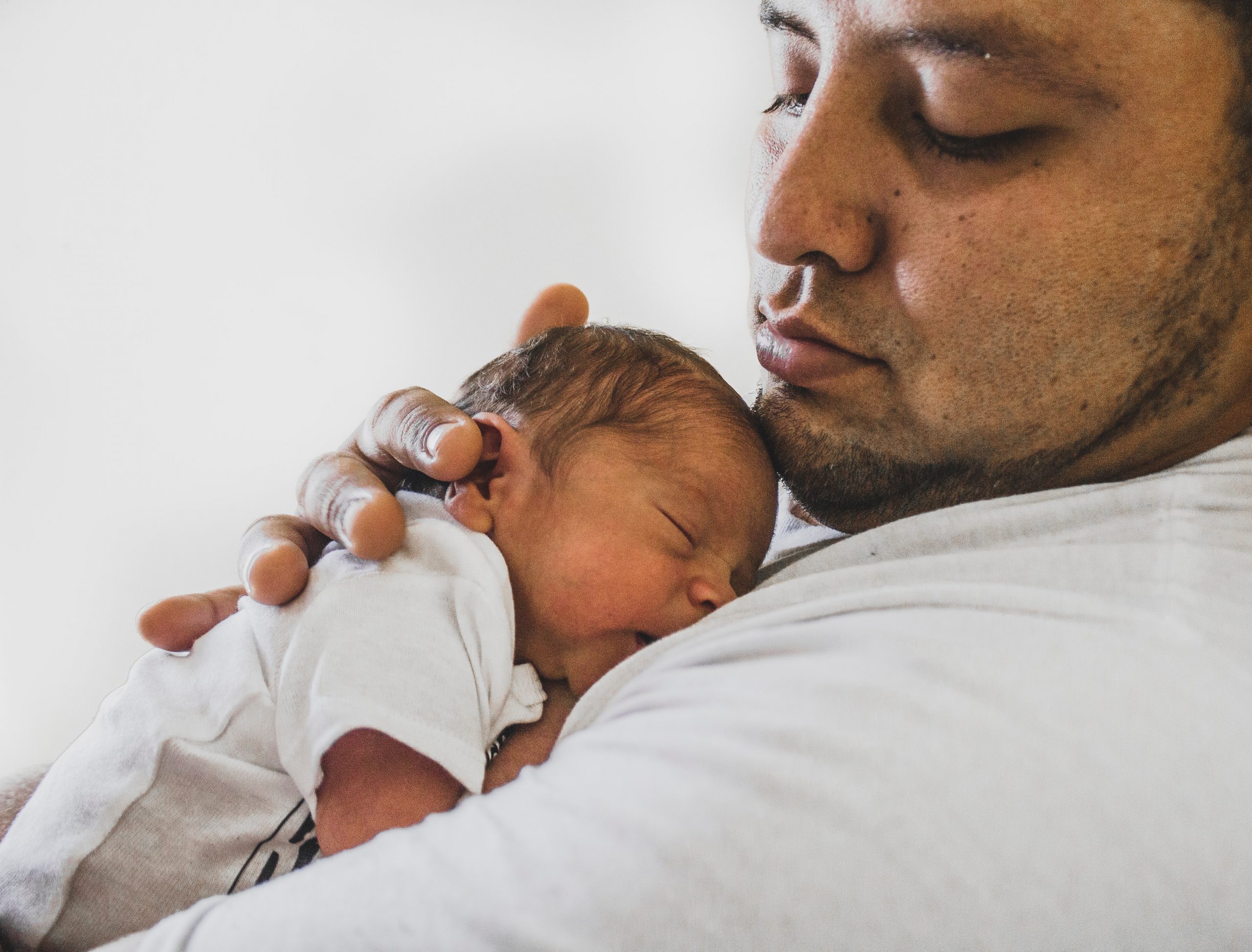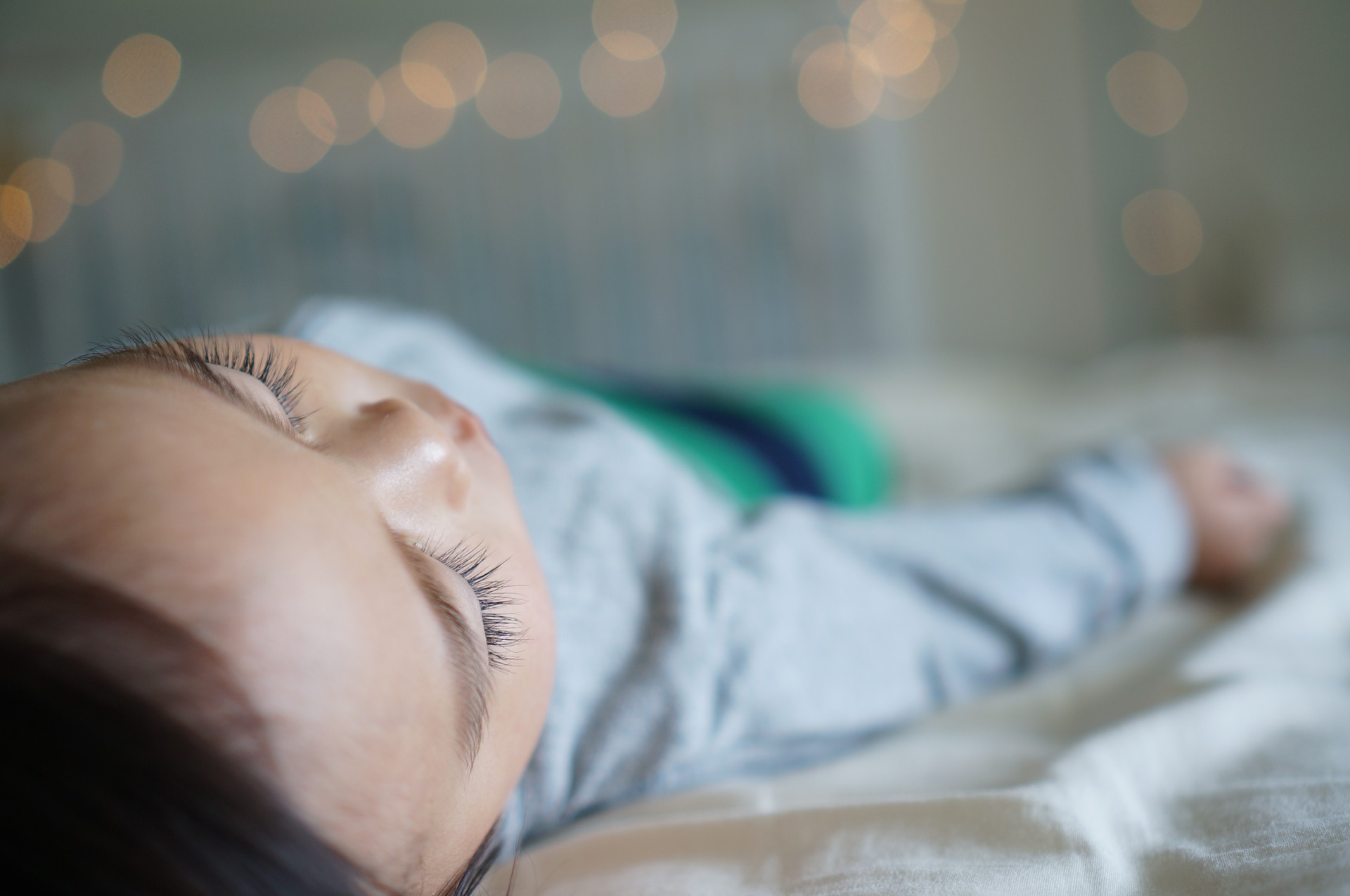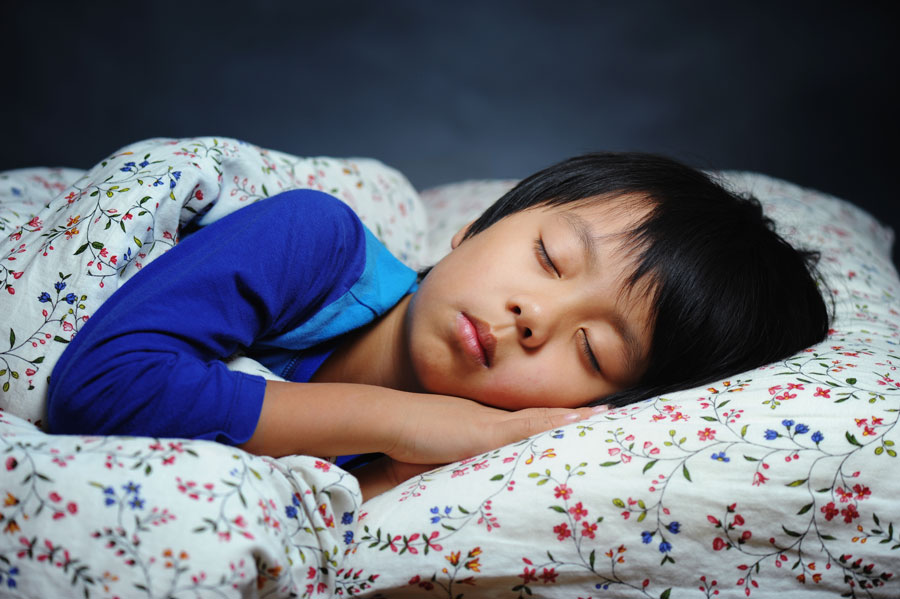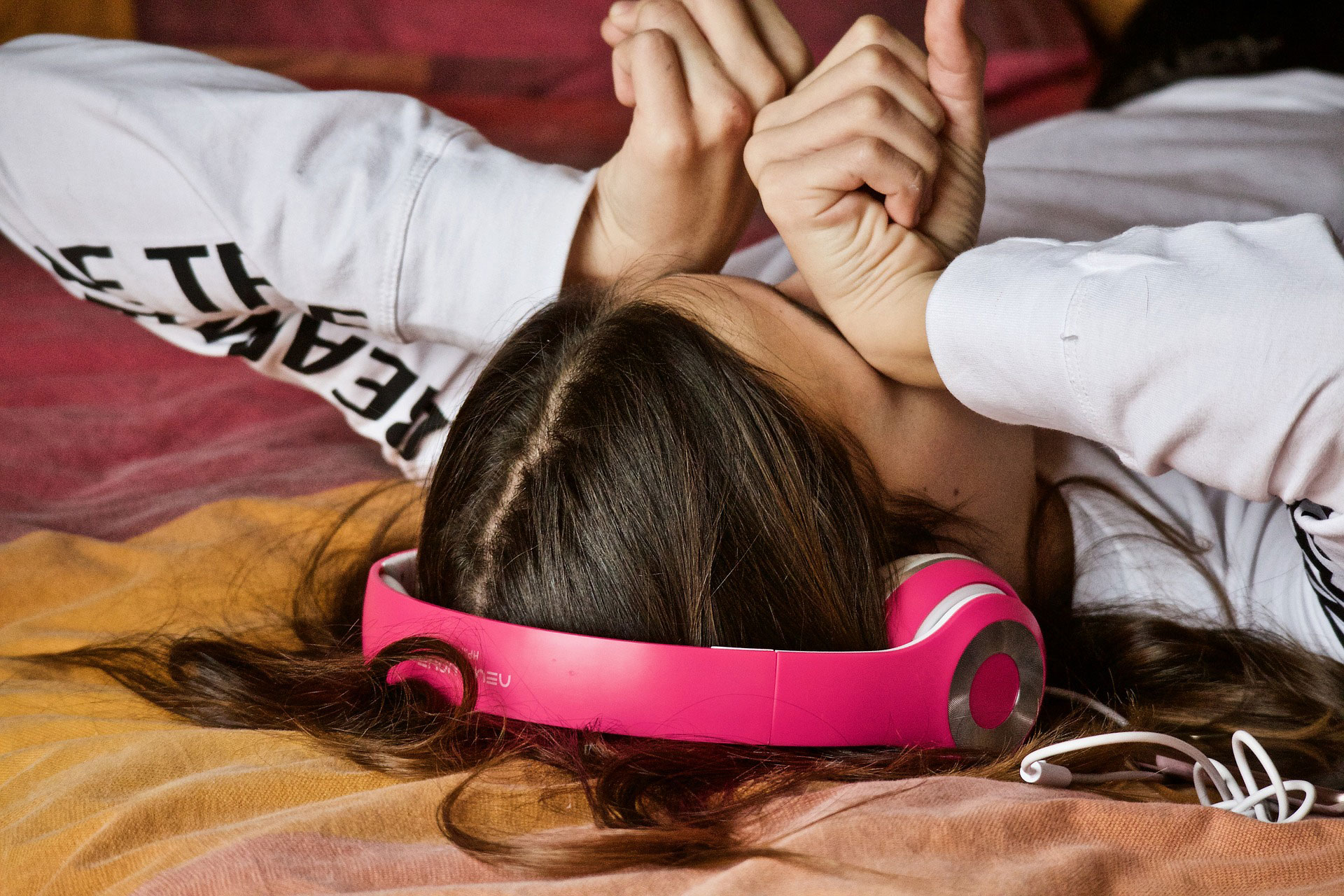Age-specific dos and don’ts
Dos and don’ts sleep related recommendations by age group

Newborns (0 - 3 months old)
Newborns need to sleep regularly throughout the day and night for periods of 3-4 hours on average.
Recommended sleep duration is 14-17 hours to avoid sleep deprivation and its negative developmental impact.
Regular sleep hygiene often involves a period of sleep followed by a wake period of 1-2 hours during which feeding, diaper change and light play and comforting social interactions occur. Past 2 months of age, babies start to distinguish day and night. Adapt your behaviour accordingly to help your baby synchronize its biological clock process to the environmental cue that is daylight. For example, be more active and feed your baby in a bright room during the day whereas stay quiet, move slower and feed your baby in a darker room during nighttime awakenings.
The sleep area should be kept warm enough, but not too warm, and free of potential choke threats such as multiple blankets, toys, teddy bears, etc. A simple sheet without a crib bumper, a swaddling blanket or a sleep sack suffice. Sleeping on the back is recommended up to one year. You can consult the « Safe Sleep for Your Baby brochure » from the Public Health Agency of Canada for additional recommended practices to help to prevent SIDS (Sudden Infant Death Syndrome), SUDI (Sudden unexpected death in infancy), and accidental deaths due to suffocation, strangulation, and entrapment.
.
Infants (less than a year old)
Sleep-wake cycle with a day rhythm starts to be apparent when the need to sleep at night is greater than during the day. When this happens, it does not mean that all children will sleep through the night, and patience is often required from parents to let the infant’s natural rhythm find its pace. Keep training your infant’s biological clock by adjusting your behaviour and environment to daytime or nighttime. Once your infant is able to maintain enough energy, his need to feed at night will disappear, and night sleep will thus become longer and less and less interrupted.
A sleep duration of 12-15 hours per 24 hours including daytime sleep (naps) is recommended. As needed, morning and/or afternoon naps of about 1 hour or more are gold standards.
A regular sleep schedule should be provided to the infant as much as possible to avoid sleep deprivation and its negative developmental impact.
Sleep hygiene now involves regular eating and active periods during the day, similar to children and adults. It now includes morning, noon and evening solid feeding, more active play and regular cleaning time. Screens should be avoided.
A safe and comforting sleep routine should be established involving bathing, teeth brushing, storytelling or reading or singing while rocking or in bed before sleep, massage, hugs and kisses goodnight, for example. The family bedtime routine should be applied consistently to become predictable, and thus reassuring. Light and noise should be controlled to not disturb sleep.
Sleep autonomy namely the infant’s ability to self sooth to sleep, can be taught and encouraged, gradually leading infants to fall asleep alone and soothe themselves back to sleep if they awaken during the night.
It is important to respect family values at this age because it is not all infants who will sleep through the night before the age of one. Sleeping on the back is recommended up to one year.


Toddlers (1-3 years old)
Recommended sleep duration is 11-14 hours including daytime sleep (naps). In general, the latter is often only necessary in the afternoon. Most toddlers will sleep through the night.
Regular sleep schedules should be provided as much as possible to avoid sleep deprivation and its negative developmental impact.
Playtimes (180 minutes or more per day) are not only more active at this age, but they become more and more social. Interactions with adults as well as with other children are pursued more and more often. After age two, screen time should also be limited as much as possible and adults should encourage high-quality activities designed for toddlers.
Continue to have a consistent and affectionate sleep routine that induces feelings of safety, and that is comfortable, e.g. a warm enough, dark and quiet environment. Introducing a transitional object such as a blanket or teddy bear may help toddlers feel safer.
Sleep autonomy namely the toddler’s ability to self sooth to sleep should be taught or encouraged to establish early long-lasting regular and healthy sleep habits. Encouraging autonomy helps infants to fall asleep on their own and “self-soothe” themselves back to sleep if they awaken during the night, like grown-ups do without parental help. When your toddlers awaken during the night, avoid taking your baby out of bed if possible. In most cases, it is preferable to stay close by, using gentle words and touch to comfort and encourage your toddler to fall asleep again.
Family values and practices should be respected while keeping in mind that teaching and encouraging sleep autonomy is crucial as it is a healthy life habit to learn early in life.
Preschoolers (3-5 years old)
Recommended sleep duration remains half of the day-night cycle, with 10-13 hours of sleep.
With preschoolers, daytime sleep (naps) may not be as needed. For toddlers, it is on a case-by-case basis as they reach school age. An afternoon rest period is, however, recommended at this age.
Regular sleep schedules should be provided as much as possible to avoid sleep deprivation and its negative developmental impact.
Sleep hygiene involves a healthy diet and 180 minutes or more of daily active play (with 60 minutes of energetic play) along with minimum screen exposure. Adults should mitigate screen time for preschoolers and if children do watch TV, they should be encouraged to watch educational, age-appropriate content, preferably with a participating adult, and stop watching one hour or more before bedtime.
An autonomous, consistent and comforting sleep routine is encouraged to provide a safe sleep environment. As preschoolers begin to understand that it is “nighttime,” they may start to have their sleep routine on their own (in a autonomous manner), e.g. brushing their teeth and putting on their pajamas. They may ask more specifically for things that meet their safety and comfort needs, e.g. their transitional object, a nightlight, their bedroom door open, , a check under the bed, or for some ambient noise or quietness.


School-aged children (6-12 years old)
Sleep needs start to vary individually, with recommended sleep duration of 9-11 hours depending on the children’s needs. They no longer need to sleep during the day (naps) to function well all day long.
Regular sleep schedules must be adapted to each child’s needs and social demands to avoid sleep deprivation and its consequences on mood, cognitive functions, school performance and health.
Three healthy meals per day and enough activity such as several hours of light activity and 60 minutes of more vigorous exercise per day. Adults should mitigate screen time for school-aged children and they should encourage children to watch educational, age-appropriate content, preferably with a participating adult, and stop watching one hour or more before bedtime. Education about media use should be acquired early, as it should not get in the way of exercising or sleeping, among other things.
An autonomous, consistent and a loving sleep routine adapted to the needs of the child and the child’s age is encouraged to provide a safe sleep environment. Transitional objects are often used during childhood.
Teenagers (12-18 years old)
At this age, sleep duration is long, with recommended sleep duration of eight to ten hours.
The biological clock process is not fixed yet compared to adults, it results in a shifted sleep schedule towards the evening. This is called the adolescence phase-delay, which is a natural transitional process, not to be confused with laziness or lack of self-control. It explains why adolescents prefer going to bed and waking up late.
Regular sleep schedules should be adjusted, as much as possible, to the teens’ biological needs (phase-delay) and social constraints to avoid sleep deprivation and its consequences on mood, cognitive functions, school performance and health. As a sleep debt often accumulates as a result of school schedules during the week, teens will tend to binge sleep on weekends to catch up. Be careful to try to keep week and weekend sleep bedtimes and wake-up times as similar as possible, with a maximum one hour and half difference, to avoid more phase delays. Maintaining a regular sleep schedule remains key to functioning optimally.
Encourage your teenager to eat balanced meals as needed while avoiding or limiting caffeinated beverages, e.g. energy drinks. Encourage enough exercise, favouring outdoor instead of indoor activities (several hours of light activity and 60 minutes of more vigorous exercise per day). Adults should still help adolescents to mitigate their screen time. Avoid screen time one to two hours before going to bed. Parents should continue educating adolescents in healthy media use, as it should not get in the way of exercising or sleeping, among other things.
While it’s important for adolescents to feel autonomous, parents should encourage them to adjust their sleep routine so that their adolescents will feel appreciated, safe, and comfortable. Parents should still help them stick to a regular sleep schedule and make their sleep environments sleep-appropriate, e.g. dark and free of electronic devices.


Adults (18-65 years old)
It’s important to ensure you have a regular sleep schedule adapted to each individual’s natural sleep needs. Depending on sleeper types (short-, intermediate- or long-) and day-rhythm types (early-bird, mid-day or night-owl) recommended sleep duration is seven to nine hours. (See the section “Sleep: a personal and lifelong natural need”)
Avoid or limit alcohol, caffeine and nicotine especially close to bedtime. Avoid eating big meals before bedtime. Participate in at least 150 minutes per week of moderate to vigorous physical activity. Limit screen time during the day and minimize sedentary activities, and refrain from using screen devices one to two hours before sleep.
Adults should pay particular attention to work and social overload, work- and family-related responsibilities and stress, so as not to lose or cutback on sleep. Sleep reduction is often seen as the price to pay for fulfilling and productive days, but sleep deprivation and a sleep deficit have serious, occasional as well as chronic, and negative health consequences (see “Why we sleep?”).
Have a personal sleep routine that makes you feel safe in your bedroom and comfortable (quality bedding, room temperature, sleeping alone or with a partner, etc.). Reserve the bedroom for sleep and intimacy.
Listen to your bed partner. Bed partners are good at raising the red flag of potential sleep problems.
Seniors (65 years old and up)
Remember that there are profound changes in the sleep-wake cycle that may or may not affect your daily life. Even if sleep becomes lighter, more fragmented or reduced as we age, we age, recommended sleep duration is seven to eight hours. This may include daytime sleep (naps) to compensate for poorer sleep quality, shorter nights or shallower sleep.
Aging, like adolescence, is a time of life associated with a phase shift related to an evolving biological clock process. Seniors have an advanced sleep phase (instead of a delayed sleep phase like during adolescence) with earlier bedtimes and wake-up times then before. Having a regular sleep schedule that respects this natural rhythm is the way to enjoy fulfilling days.
Eat healthily and limit alcohol, caffeine and nicotine. Engage in enjoyable and safe moderate to vigorous physical activities for at least 150 minutes per week.
Have a sleep routine adapted to your biological clock (advanced phase), e.g. with earlier meals and exercise.
Listen to your bed partner. Bed partners are good at raising the red flag of potential sleep problems.

